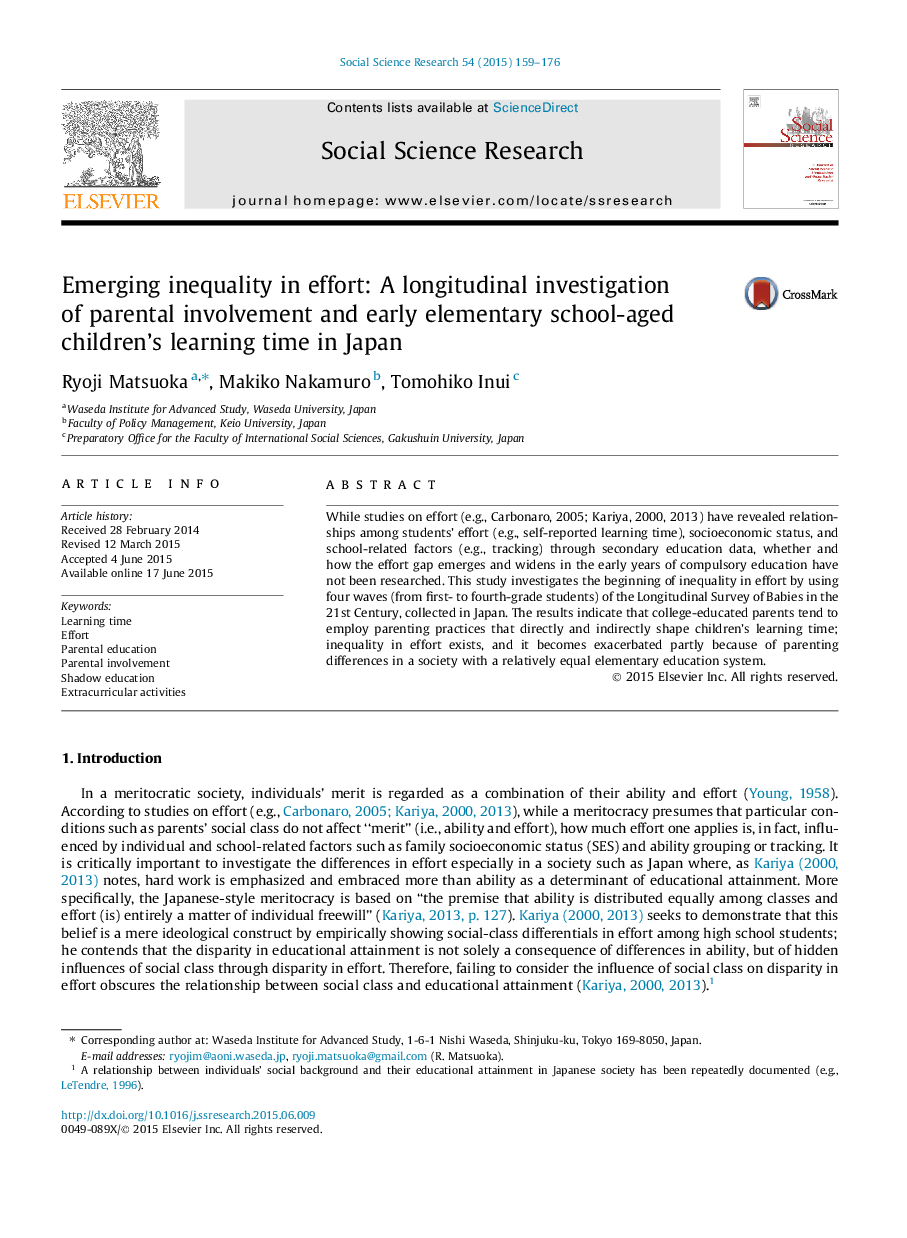| Article ID | Journal | Published Year | Pages | File Type |
|---|---|---|---|---|
| 955619 | Social Science Research | 2015 | 18 Pages |
•Data is from a society with progressively funded compulsory education.•College-educated parents tend to demonstrate higher degrees of parental involvement (PI).•Eight out of nine PI-indicators relate to children’s learning time when unobserved heterogeneity is controlled.•Two PIs’ effects on effort differ, according to parental education.•Inequality in effort is exacerbated in the first four years of elementary education.
While studies on effort (e.g., Carbonaro, 2005; Kariya, 2000, 2013) have revealed relationships among students’ effort (e.g., self-reported learning time), socioeconomic status, and school-related factors (e.g., tracking) through secondary education data, whether and how the effort gap emerges and widens in the early years of compulsory education have not been researched. This study investigates the beginning of inequality in effort by using four waves (from first- to fourth-grade students) of the Longitudinal Survey of Babies in the 21st Century, collected in Japan. The results indicate that college-educated parents tend to employ parenting practices that directly and indirectly shape children’s learning time; inequality in effort exists, and it becomes exacerbated partly because of parenting differences in a society with a relatively equal elementary education system.
